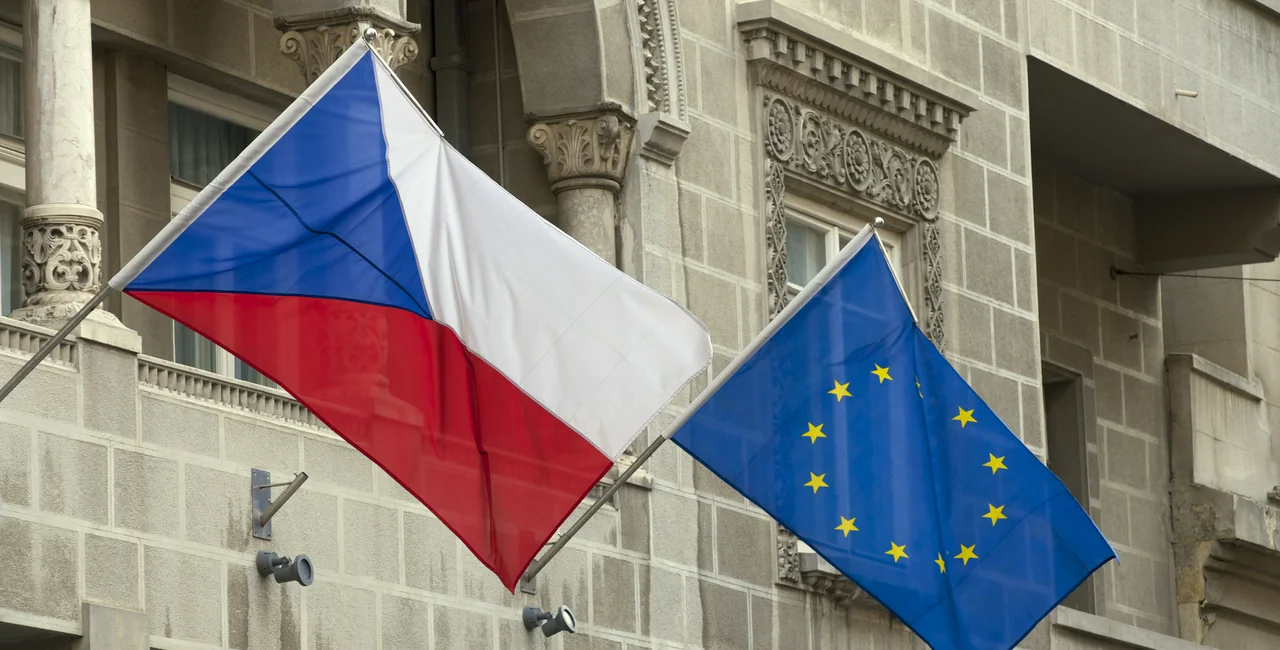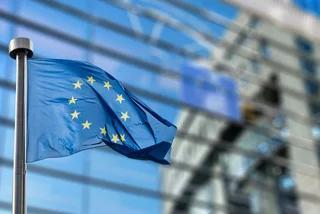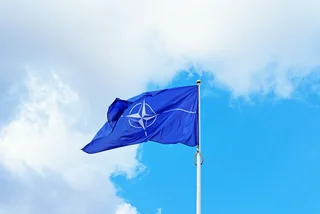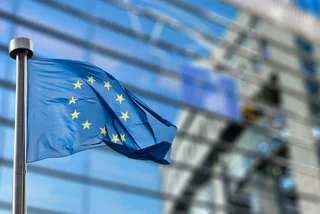This Sunday marked the EU's historic enlargement to the east. On May 1, 2004, the Czech Republic was among ten European nations to become EU member states.
Although the popularity of the EU in Czechia has been very volatile over the past 18 years, Russia's aggression in Ukraine has significantly strengthened Czech's identification with democratic Europe and the West in general.
With discourse in recent weeks revolving around the emphasis not only on the common defense within NATO but also within the EU, Czech's support for the EU has grown significantly since the outbreak of war, writes HlídacíPes.org.
In a hypothetical referendum asking whether citizens want the Czech Republic to remain in the EU, the clear 'yes' increased from 46% in February to the current 54%.
According to STEM, there is also a high level of support for joint action at the EU level in key areas of the security agenda. The strengthening (or building) of joint defense forces (85% agree) and the joint purchase of oil and gas (84%) have almost universal support.
"However, the interpretation of these data is important: the increase in support is not related to greater satisfaction with the functioning of these institutions, but to the strengthening sense of threat and demarcation at the geopolitical level," emphasize the authors of the STEM research.
Closer to the West, farther from the East?
Researchers from the Institute of Psychology of the Academy of Sciences of the Czech Republic and Masaryk University explored the impact of the invasion on cultural orientation.
One of the most profound psychological effects of the Russian invasion rests on its unifying power over Czech society. The report suggests that the sense of belonging to the West strengthened significantly and the identification with a democratic Europe became even more robust.
The researchers compared the numbers with the previous research they have done a few months before the pandemic. It examined attitudes toward vaccination and the covid pandemic.
The underlying hypothesis of the new study was that people would develop a sense of belonging to the East after the invasion, researcher Martina Klicperová told Seznam Zprávy. To the surprise of the researchers, it did not happen – the identification with a democratic Europe has increased significantly.
At the same time, the increase in belonging to a democratic Europe did not necessarily lead to reduced belonging to the East. Questions about cultural identity were asked independently of each other so that each respondent could state belonging to multiple cultural orientations at once.
"Perhaps this is also because both rival parties belong to the East, and the move away from Russia was offset by a move toward Ukraine," Klicperová said. Thus, the move toward democracy and European values was not accompanied by a move away from the East.
An additional survey carried out by the scientists confirmed that the greater inclination towards a democratic Europe was in fact related to the Russian invasion, and not just a mere coincidence. According to Klicperová, the respondents had the opportunity to formulate their answers themselves, and they looked, for instance, like this: "I have always felt to be a part of a democratic Europe, and the invasion has strengthened my position even more."
Who wants Czexit?
Despite the mounting support for the EU, the camp of "Czexiters" is stable and waiting to gain momentum.
In the long run, there are more and more people who identify as opponents of Brussels. For example, in October 2019 there were 17% of them, and in February (before the start of the war in Ukraine), it was already 32%, suggests data released by STEM.
Part of the Czech political spectrum is actively opposing the EU. Tomia Okamura's SPD has long been pushing for the adoption of a referendum law that would allow Czech citizens to vote on membership in international organizations (EU and NATO).
The effort to introduce a constitutional law on a general referendum in the Czech Republic was persistent in the last election period, but in the end, it was unfulfilled. According to some proposals, only 100,000 votes could be enough to call a referendum on leaving the EU.
The effort to portray the European Union as an "evil empire," a source of problems and to support disintegration efforts, has long been one of the key elements of Russian propaganda.
New organizations are emerging that set leaving the EU as their main goal, such as the Ostrava association Odchod founded in July 2020. Since 2021, it has been a member of the Eurexit Movement, which unites Eurosceptic associations from six EU countries.
Less successful political parties, such as Sovereignty, the KSČM, the Free Bloc, or the Tricolor also show the support for nationalism and departure from the EU.
Nevertheless, the democratic parliamentary parties fully support the Czech Republic's continued and active membership in the EU. The current government will also take over the EU presidency for the second time in history starting July 1.












 Reading time: 4 minutes
Reading time: 4 minutes 






























